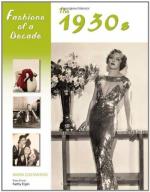|
This section contains 202 words (approx. 1 page at 300 words per page) |

|
Before the Depression, banks and bankers held an interesting place in the American imagination. On one hand, bankers had been among the most esteemed figures in the United States, especially during the boom of the 1920s. For many, bankers were synonymous with sobriety, thrift, and hardheaded realism. Banking was the institution that could lead rightthinking young men to wealth and a place among the elite. On the other hand, the populist tradition in America had long viewed banking as a sophisticated form of loan-sharking. To such people, investment was akin to gambling; interest similar to usury. Enough people remained suspicious of banks that hundreds of thousands kept their savings in tins beneath their mattresses or buried in backyards rather than deposited in banks. J. P. Morgan and Company, in New York, represented both images. To partisans it was responsible and powerful...
|
This section contains 202 words (approx. 1 page at 300 words per page) |

|




